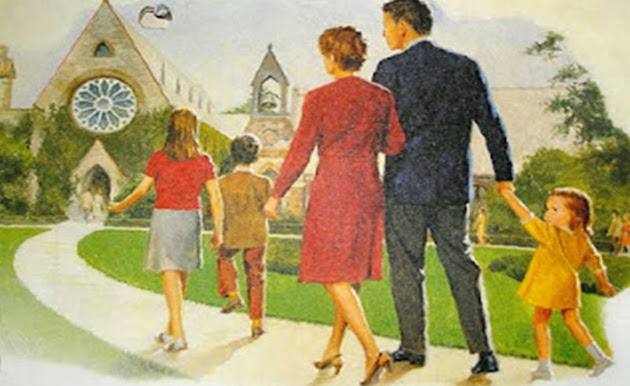“It’s a fairly easy thing for churchgoers to do,” said Scott McConnell, executive director of LifeWay Research, based in Nashville. “In any six-month stretch, there are major Christian holidays and often other special events that are perfect occasions for churchgoers to invite friends and acquaintances.”
For the study, LifeWay Research surveyed 1,010 Americans protestants who attend a Protestant or nondenominational church at least once a month.
Churchgoers were asked how often they had invited an individual or a family to attend a worship service with them in the last six months. They could include repeated invitations to the same people as well as invitations that were turned down.

Just three out of 10 (29 percent) said they didn’t invite anyone though observers say that seems too low.
“That’s a pretty substantial number,” McConnell said. “For a number of churchgoers, inviting people to church isn’t on their radar.”
Church invitations were harder to come by in some parts of the country. Forty-two percent of churchgoers in the Northeast said they hadn’t invited anyone, while 37 percent of Midwesterners skipped the invitations. By contrast, only 24 percent of Southerners and 26 percent of those in the West said they hadn’t invited anyone.
Invitations, by denomination
Churchgoers who attend Assemblies of God or other Pentecostal churches (71 percent) and those who attend nondenominational churches (69 percent) were more likely to say they had invited at least one person to church. Lutherans (55 percent) and Methodists (53 percent) were less likely.
Forty-three percent of Methodists said they had not invited anyone, as did 41 percent of Lutherans. Fewer nondenominational (20 percent), Baptist (22 percent) or Assemblies of God/Pentecostal (23 percent) churchgoers skipped invitations.
Churchgoers who were Baptist (31 percent) or Assemblies of God/Pentecostal (30 percent) were more likely to have invited three or more people than Lutherans (17 percent) or Methodists (15 percent).
Not surprisingly, the more often people went to church, the more likely they were to invite someone to go along. Twenty-seven percent of people who attend at least once a week had invited three or more people. That dropped to 10 percent for those who attended once or twice a month.
Nearly half of those who attend services once or twice a month had not invited anyone to go with them (46 percent). By contrast, 26 percent of people who attend at least once a week had not invited anyone.
Why not more invitations?
Researchers also asked churchgoers why they didn’t bring more people to church with them.
It’s a natural question, McConnell said, since most congregations want more people to have a relationship with Jesus and to experience Christian community.
“Inviting people to church should be commonplace,” he said. “Still, some churchgoers don’t put much thought into inviting others.”
Thirty-one percent said “I don’t know why” when asked why they didn’t invite more people. Twenty percent said people have refused their invitation. Seventeen percent said they didn’t know anyone to invite, while 11 percent said they weren’t comfortable asking people to come to church.
Only 4 percent said inviting people isn’t their job.
McConnell said he’s a bit concerned with people who said they didn’t know anyone to invite.
“That’s problematic,” he said. “There are a small but significant number of churchgoers who seem to have no contact with people who don’t go to church.”
McConnell said he’s not surprised to find that people turn down invitations to come to church. A 2016 LifeWay Research study found only a third of unchurched people said they were likely to come to a church worship service if invited (35 percent).
“In today’s culture, you might be inviting someone to attend a church service for the first time in their lives,” he said. “Communicating the value of why a churchgoer attends is going to take some time.”
There will be a national effort to bring people to church this fall. September 16 will be Back to Church Sunday.
— by Bob Smietana | BP








